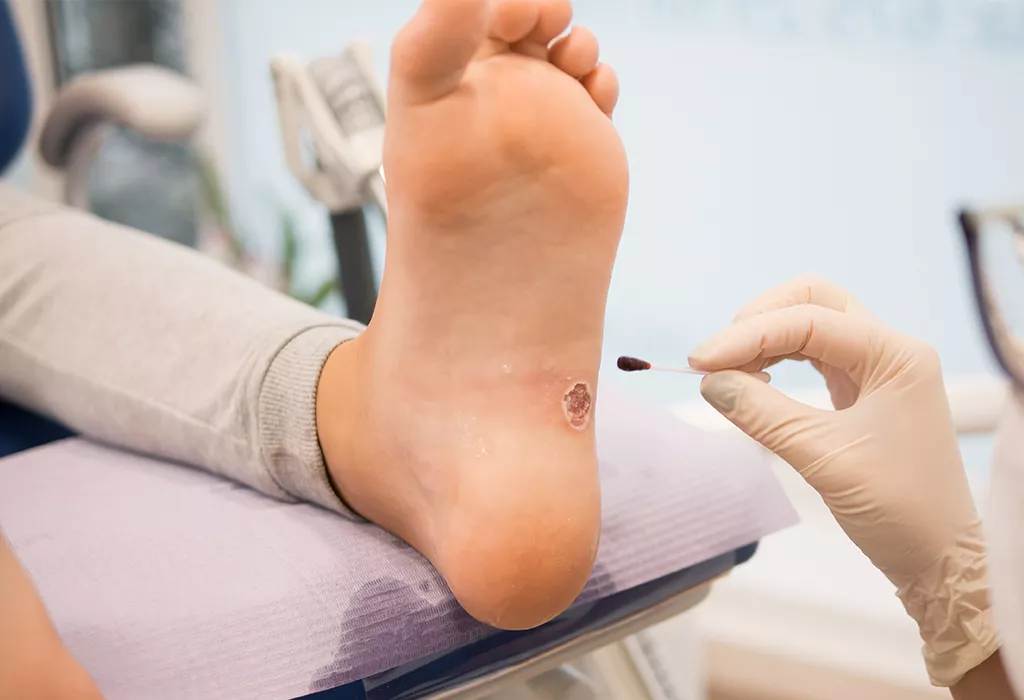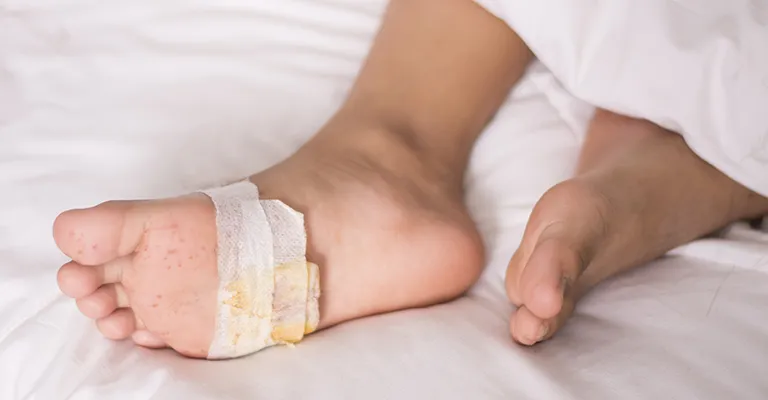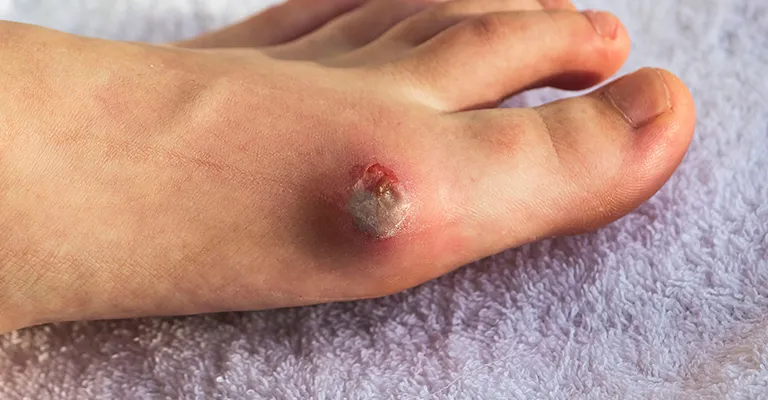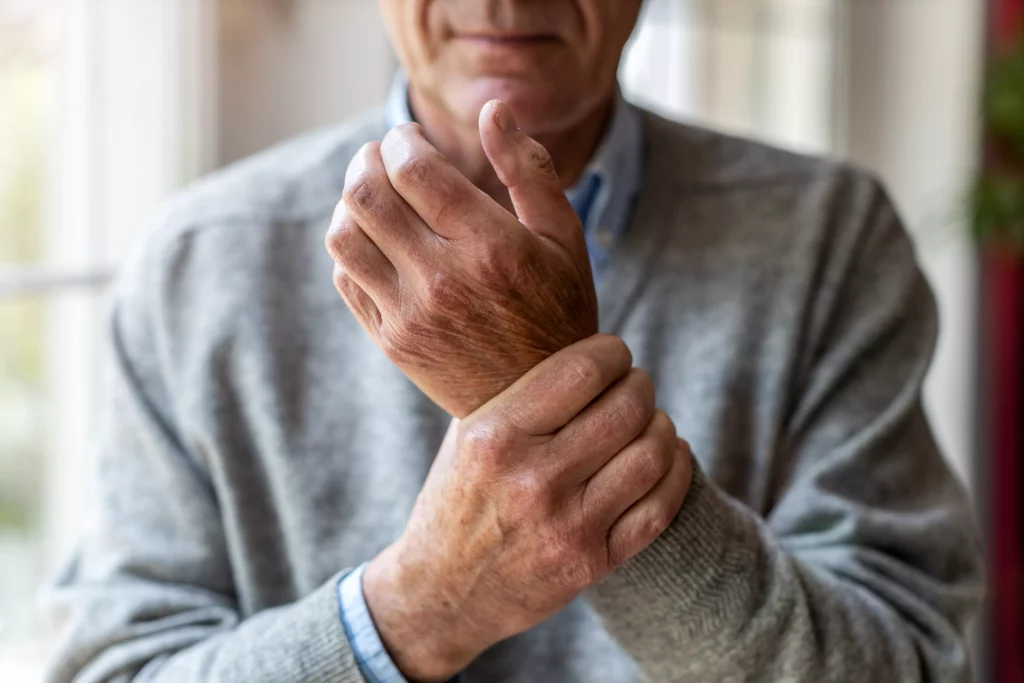Treatment for Wounds, Lesions & Ulcers
For more information or to schedule an appointment, fill out the form below. Please note that treatment options may vary by location.
"*" indicates required fields

Treatment Options for Wounds, Lesions & Ulcers
Treatment of your ulcers, wounds, or lesions begins with a comprehensive assessment by our team of wound care specialists. Our doctors and providers will identify any factors disrupting your body’s wound healing processes—interferences that can result in persistent chronic wounds and infection. Additionally, our specialists will determine if your ulcers, wounds, or lesions are linked to diabetes, which negatively impacts your immune system, nerve activity, and circulatory functions essential to the wound healing process.
Wound Care
Our non-surgical healing treatments for wounds, lesions, and ulcers harness your body’s natural healing capacities—accelerating and promoting the regeneration, repair, and replacement of damaged tissues. To promote closure and prevent infection in persistent, deep, and large wounds, our doctors utilize cellular allografts (HCT/Ps), which provide wounds with extra structural support. Allografts act as scaffolding—delivering live tissue to help transport cells and biomaterials that carry out the natural wound healing processes.
Learn MorePain Management
Our pain management specialists are committed to resolving your wound pain at its source rather than simply masking your symptoms with traditional pain management medications and treatments. We recognize the complexities of pain, and partner with you to design a customized pain management plan to identify which of our pain treatments best support your near- and long-term healing.
Learn MoreNerve Therapy
Our nerve therapy specialists recognize how essential nerve health is to the wound healing process. Wounds, lesions, and ulcers can often be associated with nerve related disorders. Our clinically-proven nerve therapy program gives you access to revolutionary infrared light therapy, nerve repair injection treatments, and vibration therapy designed to promote optimal nerve function.
Learn MoreRegenerative Medicine
Our regenerative medicine therapies replace, activate, and renew depleted or damaged tissues within the wound area—accelerating the rate of healing exponentially. Healthy tissue allograft reduces pain and inflammation, and supports the repair of damaged tissues.
Learn More

Why Anodyne for Wound, Lesion & Ulcer Treatment
Our doctors and experts thoroughly and thoughtfully consider the many dimensions of your health. We’re dedicated to identifying and treating your wound condition at its source so that we can deliver healing that lasts. When you choose Anodyne, you’re partnering with extraordinary doctors and providers who put you and your health first.
- With providers and specialists representing many fields of medicine under one roof, we bring the wound care experts to you.
- Experienced specialists in treating ulcers, lesions, & wounds.
- Proven, highly-effective treatments and services with an integrated approach to health and wellness
- Flexible payment options including insurance, payment plans, and financing available.
Schedule An Appointment
Understanding Wounds, Lesions & Ulcers
In a healthy body, when you experience a cut or scrape, your body’s immune system and wound healing processes kick into high gear, and within about two weeks, your wound is nearly or completely healed. However, the wound healing process is complex and can be slowed or prevented by a number of factors—resulting in persistent, chronic wounds. Chronic wounds are more common if you suffer from high blood pressure, obesity, or vascular disease, and they are especially linked to diabetes.
Diabetes causes your body to have consistently high blood sugar levels, and these high levels disrupt healing at the cellular level by causing problems with your immune system, nerves, and circulation. One of the most significant factors impacting wound healing is inadequate blood supply, as the oxygen and nutrients that blood carries to a wound are essential to the wound’s ability to heal and the wound site’s capacity to fight off infection. Additionally, blood with high glucose levels becomes a food source for bacteria, which feed off the extra sugars—preventing healing and causing infection.
Diabetic wounds and ulcers are also associated with diabetic neuropathy—a condition impacting your nerves and resulting in loss of feeling. When you have diabetic neuropathy, you may not even realize you have a wound—because you can’t feel it.
Your Journey to Wellness Begins Here
Whether you’re struggling to diagnose a chronic pain condition or you’re pursuing wellness treatments to stay healthy and feel great, we’re here to support you at every step of your health care journey.


